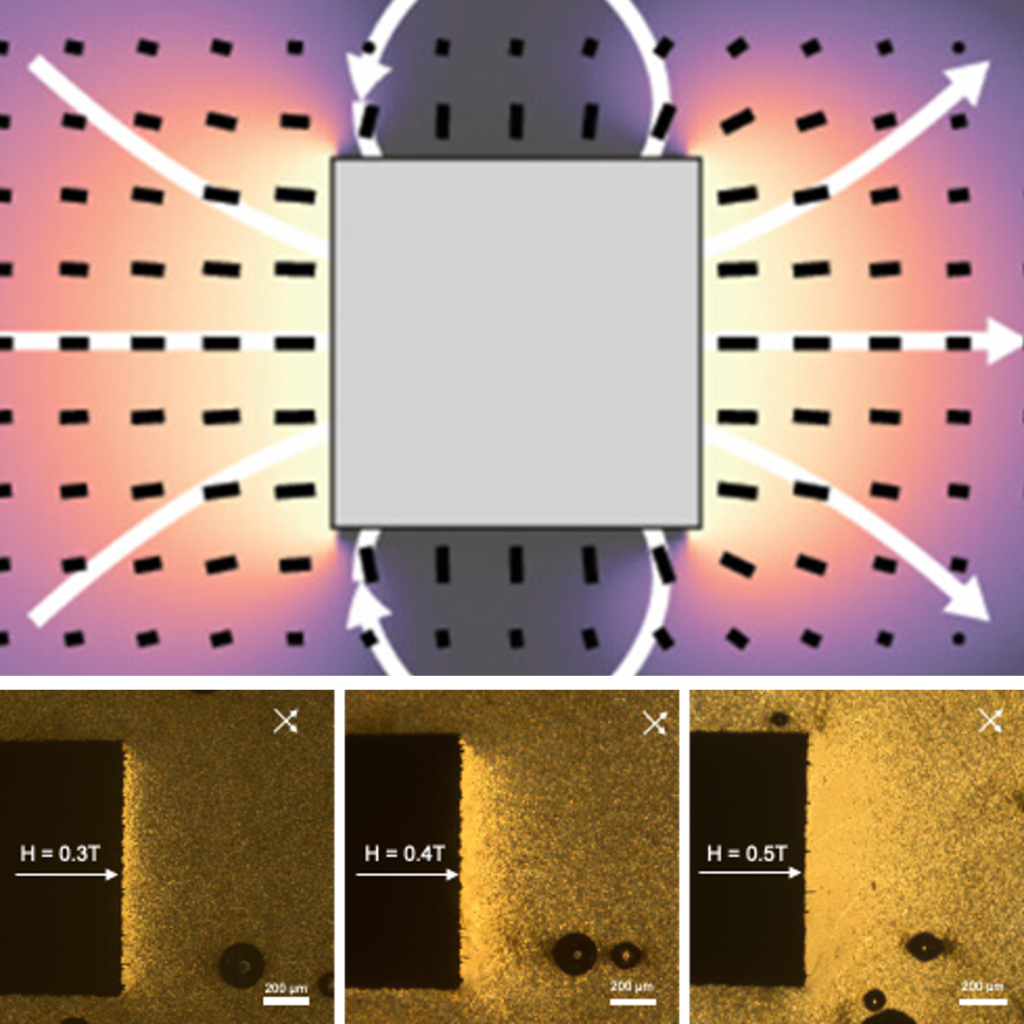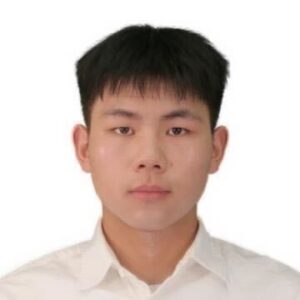
Many soft materials can self-assemble into nanoscale structures and patterns, often providing valuable material properties. Designing complex functionality in these self-assembled materials typically requires precise control over discrete domains governed by both local and long-range order. Directing this self-assembly with spatial control thus requires a detailed understanding of various material constraints: including the coupling between external fields, material elasticity, and self-assembly dynamics.
Our group investigates the fundamental constraints governing directed self-assembly (DSA) to better understand and control the spatiotemporal structuring of self-assembled soft materials. Currently, our members use a range of instruments to detect and analyze nano- to micro-scale order. Our fundamental studies explore how external magnetic, electric, and optical fields affect the ordering of liquid crystals, liquid crystal elastomers, block copolymers, and nanocomposites.
We use these fundamental insights to inform new techniques to control the spatial orientation of these materials and program their nanostructure; for example, by precisely tuning non-uniform fields across different length scales. By understanding and controlling these spatially non-uniform patterns, we aim to develop new strategies for designing materials with novel optical, mechanical, and responsive functionalities.
People

Pavel Shapturenka
pshaps@seas.upenn.edu
Postdoctoral researcher
High-Throughput & Autonomous Materials Science, Colloidal Nanomaterials, Directed Assembly
Subgroups: Autonomous Experimentation, Directed Self-Assembly

Haotian Long
htlong@seas.upenn.edu
PhD Student
Spatially-Programmed Soft Matter, Liquid Crystalline Polymers
Subgroups: Directed Self-Assembly

Yvonne Zagzag
yzagzag@sas.upenn.edu
PhD Student
Soft Matter, Liquid Crystals, Quantum Dots, Autonomous Experimentation
Subgroups: Directed Self-Assembly, Autonomous Experimentation
